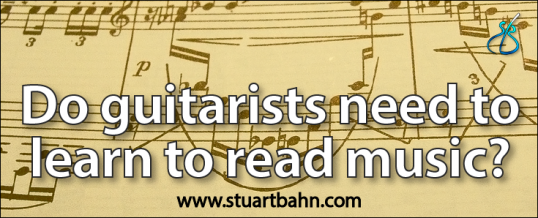
A common quote about reading music
“…and do you know, [insert name] can’t even read music? Isn’t that amazing?”
We’ve all heard this line or something very similar to it.
To someone that dabbled in learning classical piano or violin back when they were at school, it might seem that the ability to read music is essential. But really it’s nothing more than a method of communicating information.
So, do guitarists need to learn to read music? This depends primarily on two things:
- The style of music they want to master.
- Where they want to take their musical career.
What do we mean by ‘read music’
To clarify, by ‘read music’ we mean the ability to read notation such as this:

… as oppose to tablature such as this:

If you want to learn classical guitar then it’s pretty essential that you learn to read music. This is because most classical music is published using notation.
It’s true you can find some classical pieces written in tablature but in the classical world notation is king.
Do jazz guitarists need to read music?
Well, it’s certainly possible for a guitarist could get good at jazz without learning to read music. But, it doesn’t make much sense for most jazz guitarists to deliberately avoid learning to read music.
A typical jazz performance consists of a faithful rendition of the composed melody and chord changes known as ‘the head’. This is then followed by several improvised choruses based on the same melody and chords. After the improvised choruses the head is repeated and the tune is brought to an end.
The ability of a jazz guitarist to improvise well is mainly down to a good theoretical understanding of music, having a good vocabulary of authentic jazz phrases, and the experience the performer has had of improvising with other jazz musicians. 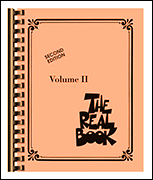
Most jazz guitarist own a ‘real book’, which contains the melody (in notation form) and chord changes to a large number of jazz standards.You could in theory source or transcribe tablature charts of jazz tunes that you intend to perform, instead of learning to read music, but this is very limiting and time consuming.
On a jazz gig, it’s not unusual for tunes to be chosen on the spot. The musicians flip to the appropriate chart in their real books (or find it in their ‘real book’ apps) and off they go, with the lead player reading the music for the head part, unless they know it by heart.
A guitarist that has not learned to read music will be a very inflexible jazz musician. This would make them far less appealing to a bandleader than a guitarist that does read music.
If you don’t already have one click here to buy a Real Book.
Do guitarists need to reading music for other styles?
So what about popular music styles such as rock, pop, blues, funk and country? For the most part the ability to read music is unimportant for guitarists that play these styles of music.
Although some exist, in reality nobody uses a ‘rock real book’. Rock guitarists generally have good basic knowledge of music theory, and they learn from tablature and by using their ears. Guitarists that play or write pop music primarily rely on knowing chords and maybe some theoretical knowledge.
Though some of these guitarists may read music well, they are definitely in the minority.
Blues, funk and country guitarists generally don’t need to read music. Guitarists that play these styles of music learn chords and scales that are appropriate to these styles. They also learn authentic musical vocabulary (aka ‘licks’) that form the backbone of their improvised solos. Specific parts tend to get notated using tablature or they’re simply memorised.
So broadly speaking, it’s jazz and classical guitarist that need to be able to read music well. There is, however, one aspect of reading music that is very useful for playing virtually any style of music…
The ability to read rhythms
Most guitarists become familiar with reading tablature relatively quickly, but only make use of half the information on the page: the fret numbers and strings. This part of tablature tells us where to put our fingers but it doesn’t tell us when each note is played or how long for.
It’s the information in the upper stave that tells us this, and this is just as important to delivering an accurate performance as the notes themselves:
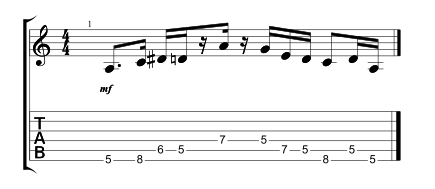
The fact that so many guitarists avoid embracing this aspect of reading music is surely because musical symbols appear impenetrable to the uninitiated. It’s fairly obvious what tablature is telling is, but the meaning of rhythmic notation is not obvious.
For many it’s more appealing to ‘get by’ by fudging things rhythmically or by relying on hearing the part played enough times that they can copy it, or else getting the part together through trial and error.
This is an inefficient and unnecessary approach to take though. Learning to read basic rhythms is much easier than learning to read music in its entirety. You just need to invest a little regular time to develop the skill.
If you haven’t learned to read rhythms yet, I highly recommend the book Modern Reading Text in 4/4 For All Instruments. This book takes you from the very simplest of rhythm reading exercises to the really quite complex, one gentle step at a time.
The time invested in learning to read rhythms will be paid back to you many times over in the future. You’ll be able to quickly read and notate parts accurately. In addition you will develop a clearer understanding of rhythms that will allow you to communicate better with other musicians.
So, for many popular music guitarists, the part of reading music that brings the most immediate benefits is simply learning to read rhythms.
Reading music and getting work
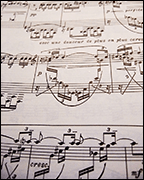 So returning to notation and how it relates to a career in music, one of the most compelling reason to learn to read music is to do work with a musical director. This includes the somewhat vague job description of ‘session guitarist’, as well as getting work performing in theatre shows.
So returning to notation and how it relates to a career in music, one of the most compelling reason to learn to read music is to do work with a musical director. This includes the somewhat vague job description of ‘session guitarist’, as well as getting work performing in theatre shows.
Tablature is guitar-specific whereas notation is universal, and musical directors are typically pianists, not guitarists. A pianist can notate a part for a saxophonist, a violinist and yes, a guitarist, but he or she will not want to get involved in tablature.
Regardless of how skilled you are as a guitarist, if you can’t read music you are a considerably less appealing prospect in the world of sessions and theatre work than a good reader.
For more on this line of work, see my article How to make money with your guitar – part 2.
Conclusion
So, if playing jazz or classical guitar appeals to you, you need to learn to read music. If you want to get guitar work in theatres, you need to learn to read music.
For popular music styles of guitar playing, you don’t need to read music but I highly recommend learning to read rhythms. Consider taking an honest look at your rhythm reading skills and see if it’s something you should work on.
There are undoubted benefits to being able to read music even if you don’t play jazz or classical, or want to work in theatres. But it’s important to ask ourselves how worthwhile it would be to invest lots of time learning to read music. If so, add it into your guitar practice regime.
If you don’t already have a well-structured practice regime, you can sign up to my mailing list to receive my free ebook ‘How to revolutionise your guitar practice‘.
So, the next time someone asks you “do guitarists need to learn to read music?” or delivers you the “isn’t it amazing?” line, you can now look them right in the eye and confidently tell then “it depends…”.
If you liked this article ‘Do guitarists need to learn to read music?’ please share it with others.
photo credit: pfly via photopin cc
MAR
2013
About the Author:
Stuart Bahn is a professional guitarist and guitar educator in London, England.